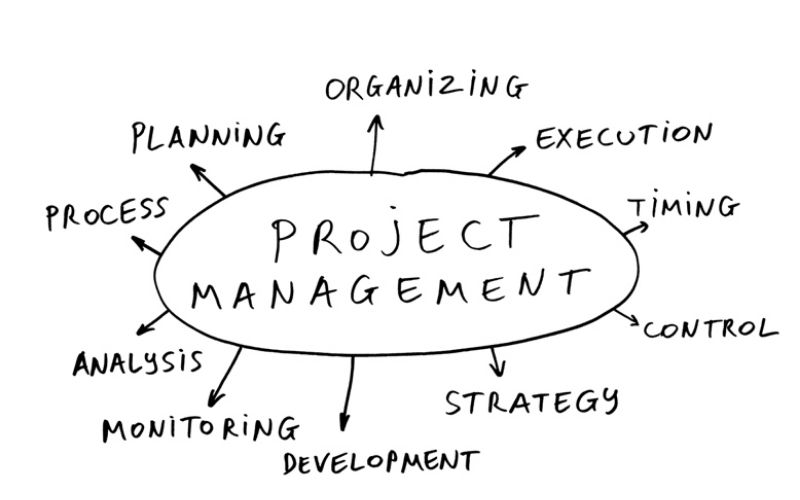
Using your own words, define “Project Success”. Describe some aspects of how you would approach a project to ensure delivery of successful project outcome.
Introduction
Projects are defined by their scope, budget, and schedule. For example, an Agency is to undertake a project to design and build a new maintenance facility for its fleet of buses (scope), at an estimate of $30 million (preliminary budget) over a three-year period (schedule). The schedule specifies a defined beginning and end. Projects go through a life cycle of phases between their beginnings and end that for construction projects are typically: initiation, planning, design, construction, commissioning, and closeout.
Project Success is defined in many ways but briefly means that it consists of many activities which have to be considered and completed within the constraints of time, cost, and performance. Project can be successful if the following factors are implemented.
Time Period: Time plays a key role for completion of project. Every Project are constrained to a specific time period and within that time the project should be completed. There should not be any extensions if the completion date of project is finalised.
Cost/Budget: It is also a key constraint for all projects in a limited budget. Projects should run within the budget allocated. All requirements should be fulfilled within the budget limits and the resources should be used efficiently to complete the project. Generally the project manager develops the budget based on the cost estimates at the beginning of each project phase and refines it once there is better information defining the scope. Refining the budget occurs through studies and analysis in the design development process through the Preliminary engineering phase. When Agencies try to fix the budget too early in the project life cycle, they are surprised by the significant increases in the budget over what was set forth in the Capital Improvement Plan. The budget should not be fixed as baseline until after completion of the preliminary engineering phase.
Performance:
SocioCultural Issues:
Sociocultural factors play an increasingly significant role in the development project management. This aspect produces a provisional social system within a well-built organizational environment that unites the talents of a different set of professionals working to entire the project. Project managers should build a supportive social network among a different set of collaborators with diverse standards, obligations, and views. Since People are the essential part of project, the essential factors narrating people in project management are teamwork, communication, leadership, negotiation, problem solving, behavioural characteristics and conflict management.
Project’s success greatly depends upon the commitment of all the team members to achieve the common goal. To select the right members and ensure good team work within the project team is a challenge for the project manager. Effective communication is essential; the main objective of communication in project management is to perceive that there is a general understanding of the project.
Leadership involves identifying and articulating the need to considerably change the direction and function of the project, aligning people to the latest direction, and motivating them to work collectively to conquer hurdles produced by the change and to understand innovative objectives. Negotiation is the process of planning, discussing, suggest, trade-offs, bargaining and agreeing. The factors like resources, assignments, scope, cost and schedule of objectives are managed by the project staff in a project.
The project manger should be capable of identifying and analysing problems related to technical and managerial aspects in a project. By constructing problem-solving in a project and problem collaboration in project team then these problems are dealt swiftly. Problem definition and decision making are involved in problem solving.
Behavioural characteristics are the factors that divide and depict a person’s favoured way of acting, interacting, and responding in a variety of circumstances. The behavioural characteristics which are essential for project management are thoughts, common sense, progressiveness, adaptability, creativity, prudent risk taker, equality and commitment.
In several organizations, conflicts occur between employees as a normal result of employee relations. The project manager needs to identify the objects and behavioural components of conflict. In any organisation conflicts can be managed by collaborating, compromising, smoothing, avoidance and competing.
1. Project Mission—- It should have defined goals and general directions.
2. Project Schedule/Plan —- A detailed specification of the individual activities for the project Implementation.
3. Client Consultation —- There should be regular consultation, communication and active participations in all meetings.
4. Personnel — Recruitment, Selection, and Training of the necessary personnel for the project team.
5. Technical Tasks— For a certain project there should be availability of the required technology and expertise to accomplish the specific technical action steps.
6. Clients Acceptance —- The act of selling the final Project to its ultimate intended users.
7. Monitoring and Feedback—- Timely provision of comprehensive control information at each stage in the implementation process.
8. Communication —– The provision of an appropriate network and necessary data to all key actors in the implementation process.
9. Trouble-shooting —- Ability to handle unexpected crises and deviations from plan.
10. Top-Management Support —- Willingness of top management to provide the necessary resources and authority/power for project success.
Question 2 (5 Marks)
Describe the role of the Project Manager. Discuss the extent to which the power of the Project Manager is dependent upon the organisational context. (Note – assume the organisation is the employer of the Project Manager).
Introduction:
Definition:
A project manager is the person who has the overall responsibility for the successful planning and execution of a project.
Aim Of Project Manager
To understand the nature of the work.
To make sure that customer is satisfied.
To ensure quality and safety of the work done.
To ensure work is done within the specified budget.
To ensure work is done within the specified time limit.
To coordinate the activities of various team members to ensure that they perform right task at the right time as a cohesive group.
Role Of Project Managers
- Planning
- Organizing
- Controlling
- Leading
- Communicating
- Cognitive functions
- Self management functions
- Motivational and personal development functions
- Customer awareness functions
- Organizational savvy functions
Planning
- Defines the project objective and reaches agreement with the customer on this objective.
- Communicate this objective to the team members for successful accomplishment of the objective.
- Along with the team members development plan is prepared.
- Review of the plan with the customer.
- Project management information system is formed to compare actual progress to planned progress
Organising
- Involves securing the appropriate resources to perform the work.
- Identify the various type of activities which are to be performed.
- Assign responsibility and delegates authority to specific individuals or sub contractors.
- To ensure these activities are completed within specified budget and schedule.

Controlling
- Implements a project management information system to compare actual progress to planned progress.
- Monitors the assigned tasks and regularly get data on progress, schedule and costs.
- Immediate actions are taken if actual progress falls behind planned progress.
- Along with the team members he/she decides appropriate corrective action and how to replan those parts of the project.
- He/she must be proactive, resolving problems before they become worse.
Leading
- Clearly define roles, responsibilities and performance expectations.
- Foster collaboration among team members.
- Removing of obstacles that hampers team progress, readiness or effectiveness.
- Promotes team participation in problem solving and decision making as appropriate.
- Passes credit on to team, and promotes their positive visibility to upper management.
- Appreciates, promotes and leverages the diversity within the team.
Communicating
- Communicate effectively with all levels inside and outside of the organizations.
- Negotiate fairly and effectively.
- Brings conflicts into the open and manages it collaboratively and productively.
- Able to influence without relying on coercive power or threats.
- Conveys of ideas and information clearly and concisely, both in writing and orally.
Cognitive Functions
- Gathers information systematically; seeks input from several sources.
- Considers a broad range of issues or factors when solving problems.
- Collects the appropriate quantity of data for the situation before making a decision.
- Draws accurate conclusions from quantitative data.
- Makes decisions in an unbiased, objective manner using an appropriate process.
Self Management Functions
- Maintains focus and control when faced with ambiguity and uncertainty.
- Shows consistency among principles, values and behavior.
- Resilient and tenacious in the face of pressure, opposition, constraints, or adversity.
- Manages implementations effectively; recognized as someone “who gets things done.”
- Actively seeks feedbacks and modifies behavior accordingly.
- Actively pursues learning and self development opportunities
Motivational And Personal Development Functions
- Considers individual skills, values and interests when assigning or delegating tasks.
- Allows team members an appropriate amount of freedom to do the job.
- Continuously seeks and offers opportunities for personal and professional growth.
- Provides for training and support when needed.
- Gives timely, specific and constructive feedback.
Customer Awareness Functions
- Anticipates customer’s needs and proactively strives to satisfy them.
- Accurately translates the customer’s verbalized wants into what they actually needs.
- Seeks to understand customers and their business.
- Actively build and maintain strong customer relationships
- Responsive to customer’s issues, concerns and queries.
Actively strives to exceed customer expectations.
Organizational Savvy Functions
- Involves the right people at the right time
- Understands, accepts and properly uses power and influence in relationships.
- Builds and leverages formal and informal networks to get things done
- Knows the mission, structure and functions of the organizations and others
- Understands profitability and general management philosophy
- Balances interests and needs of team/project with those of the broader organization
Conclusion
“The Project Manager is a key ingredient in the success of a Project. In addition to providing leadership in planning, organizing and controlling the Project, the manager should possess a set of skills that will both inspire the project team to succeed and win the confidence of the customer. Effective Project Managers have strong leadership ability, the ability to develop people, excellent communication skills, good inter personal skills, the ability to handle stress, problem solving skills and time management skills”.








